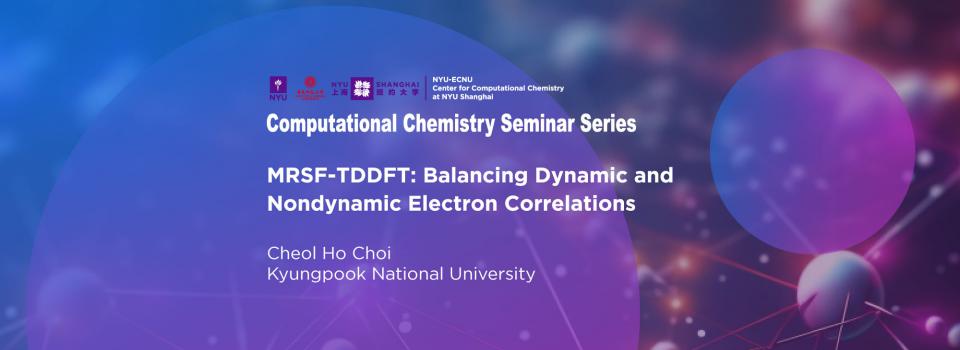
Abstract
A new quantum theory, MRSF-TDDFT (Mixed-Reference Spin-Flip Time-Dependent Density Functional Theory) has been developed, which introduces the multi-reference advantages within the linear response formalism. The density functional theory (DFT) and linear response (LR) time-dependent (TD)-DFT are of utmost importance for routine computations. However, the single reference formulation of DFT is suffering from the description of open-shell singlet systems such as diradicals and bond-breaking. LR-TDDFT, on the other hand, finds difficulties in the modeling of conical intersections, doubly excited states, and core-level excitations. Many of these limitations can be overcome by MRSF-TDDFT, providing an alternative yet accurate route for such challenging situations. Now the theory is combined with NAMD, QM/MM, Spin-Orbit Couplings, and Extended Koopman Theorem. Here, we highlight its performances by presenting our recent results by MRSF-TDDFT especially focusing on nonadiabatic molecular dynamics.
Biography
Cheol Ho Choi was born in Daegu, South Korea (1967), and grew up in Daegu and Seoul, South Korea. He received B.Sc. and M.Sc. degrees in Chemistry from Seoul National University, South Korea, where he worked in the laboratory of Professor Kwan Kim. In 1998, he obtained his Ph.D. (Hons) in Chemistry from Georgetown University, working with Professor Miklos Kertesz. After postdoctoral research with Professor Mark Gordon at Iowa State University, Choi started his independent career at the Kyungpook National University, Daegu, South Kore in 2001. He is currently the Full Professor of Chemistry and the director of BK21 research center of the Chemistry Department. He is a Member of the American Chemical Society and the Korean Chemical Society and was awarded the distinguished scholar from Kyungpook National University (2008), Young Physical Chemist (2009) and Ipjae Physical Chemist (2018) from the Korean Chemical Society. His research focuses on the development and application of efficient electronic structure methods and their applications especially on the excited states.
Seminar Series by the NYU-ECNU Center for Computational Chemistry at NYU Shanghai


